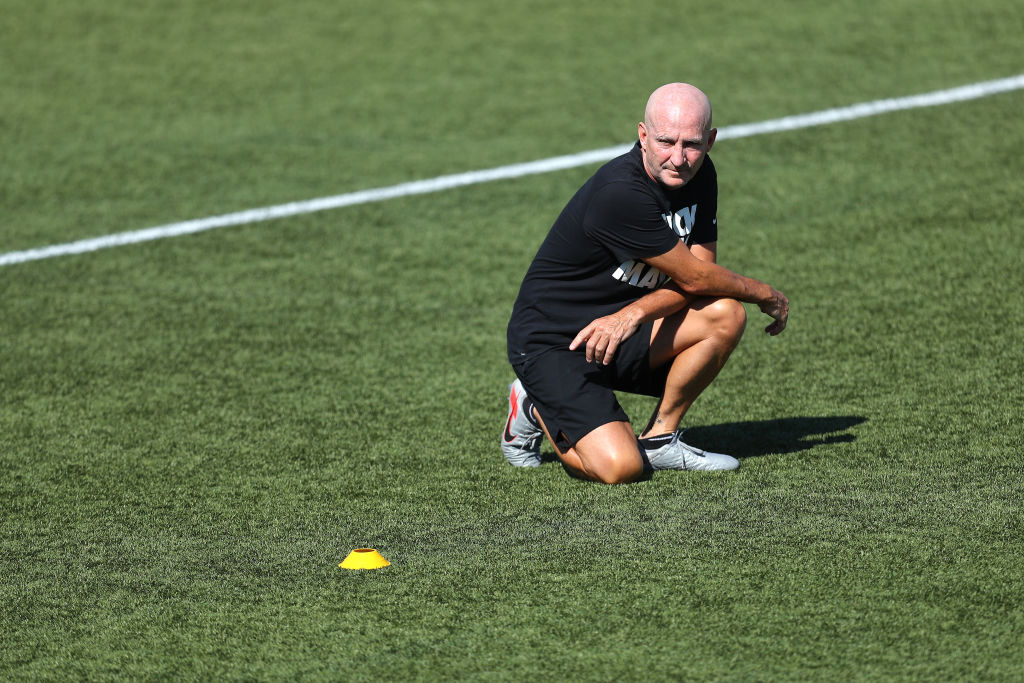The Athletic published today a long, reported story that should feel depressingly familiar to any fan of the NWSL. The story concerns current North Carolina Courage coach Paul Riley, who previously coached the Portland Thorns and Western New York Flash, and what his former players describe as a toxic team environment that he fostered by pursuing inappropriate relationships with women on the team.
One player, Sinead Farrelly, told The Athletic that on two separate occasions she felt like she had been coerced into having sex with Riley after a night of heavy drinking. Another player, Mana Shim, told The Athletic that Riley made multiple inappropriate sexual advances on her. Both Shim and Farrelly described a night when they found themselves in Riley's apartment after a night of drinking, where he encouraged them to kiss each other in front of him, promising that the next day's training session would be far less grueling if they obliged.
The Athletic's story comes on the heels of a series of reports from the Washington Post, which detailed allegations of verbal abuse against former Washington Spirit coach Richie Burke, who was fired after three players detailed the abuse they suffered at his hands, which they say drove them to leave the team. In July, Gotham FC announced that the team's general manager, Alyse LaHue, had been dismissed from the team following an investigation into violations of the league's anti-harassment policy.
Shortly after the publication of The Athletic's story, the NWSLPA, which is currently bargaining its first CBA with the league, released a statement demanding that the NWSL investigate the allegations made against Riley:
'The NWSL has failed us,' the league's players association (@nwsl_players) says in a statement that makes several immediate demands. pic.twitter.com/DX61GNw9WN
— Andrew Das (@AndrewDasNYT) September 30, 2021
If anything positive is to come from these allegations of abuse and mistreatment finally seeing the light of day, it is that the revelations are happening against the backdrop of NWSL players having formed a union through collective action. It is difficult for any worker to speak up for and protect oneself when they are alone, particularly in a field that is as precarious as women's sports. If the NWSL has any shot at cleaning up what increasingly appears to be a widespread toxic culture, it begins with the players speaking with their collective voice.






